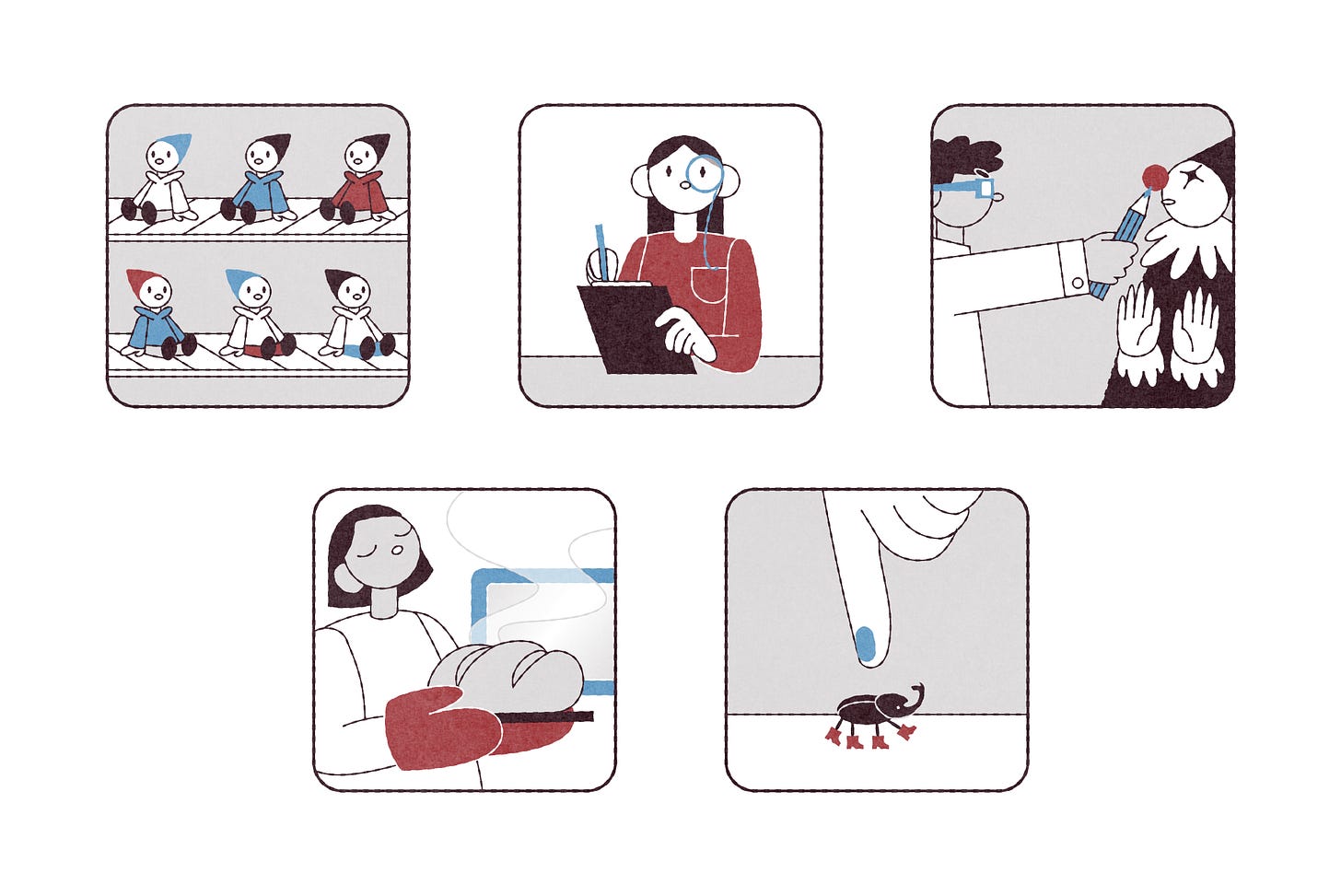This Will Change How You Use Comic Relief in Your Writing Forever
Lesson 1 of Comedy for All: How to Make Your Writing Funny

Hello, writers! Welcome to “Comedy for All” at the illustrious Forever Workshop.
This is an introductory humor writing workshop for writers of all varieties.
Whether you write personal essays, short stories, novels, narrative nonfiction, business writing, ad copy, or comedy itself, this course is for you—assuming, of course, that you want to invest in your humor writing.
If you are opposed to humor, though, this course is not for you. If “humor hater” describes you, please check out the course, “Tears, Demons, and Sad Literary Symbolism 101” which is in the other Substack in the basement.
Anyway, I’m glad you’re here. I’m Alex Baia, a humor writer, improv comedian, and long-time lover of funny writing. I also run Comedy Bizarre on Substack, a weekly newsletter about comedy writing.
I’ll be your instructor and guide through this four-part foray into humor. Let’s crack right into it!
Five Core Principles Of Humor Writing





